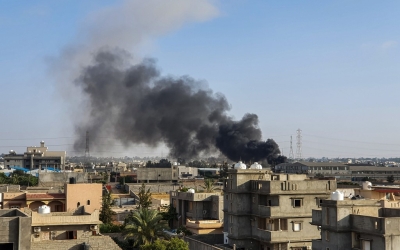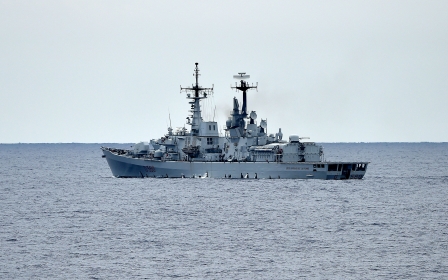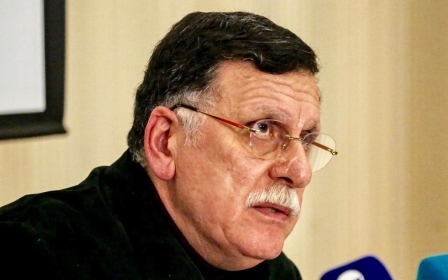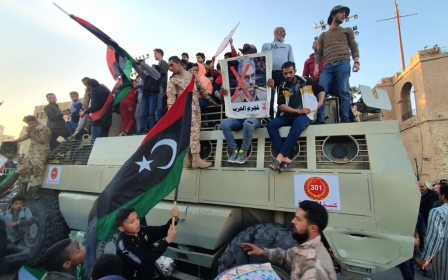Libya is 'world's largest theatre' for drone attacks: UN
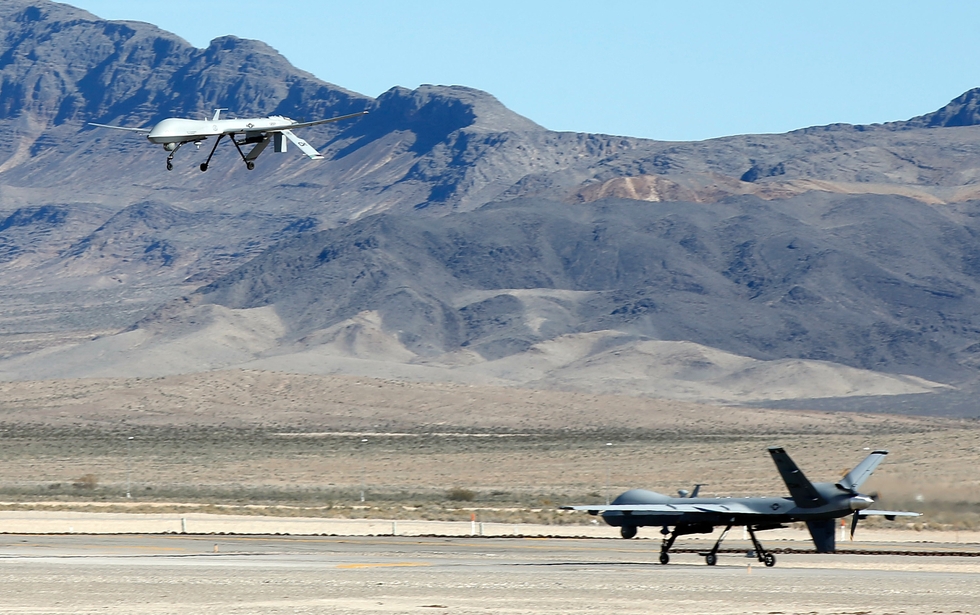
The United Nations has described Libya as the "world's largest theatre for drone technology," and warned that the nine-year conflict was taking an "incalculable" toll on civilians.
Yacoub el-Hillo, the UN resident and humanitarian coordinator for Libya, said that the protracted conflict was "severely impacting civilians in all parts of the country on a scale never seen before", with nearly 900,000 people needing humanitarian assistance.
'Everyone has something flying in the Libyan sky, it seems'
- Yacoub el-Hillo, UN humanitarian coordinator for Libya
"The increasing use of explosive weapons has resulted in unnecessary loss of life," Hillo said in a video briefing to journalists from Tripoli.
And when it comes to the use of drones: "Everyone has something flying in the Libyan sky, it seems."
Despite a UN arms embargo against Libya, foreign actors have repeatedly been accused of transferring arms to forces loyal to military commander Khalifa Haftar.
New MEE newsletter: Jerusalem Dispatch
Sign up to get the latest insights and analysis on Israel-Palestine, alongside Turkey Unpacked and other MEE newsletters
Since 2016, there has been a gradual build-up of Emirati infrastructure and aircraft, including drones, at Libya's al-Khadim air base, which is about 105km east of Benghazi.
Last month, the Tripoli-based Government of National Accord (GNA) said an attack on a military school, which caused the deaths of 30 students, was carried out by a Chinese-made Wing Loong II drone belonging to the UAE.
'Serious violations'
Libya has been wracked by violence since 2011 when a Nato-backed uprising overthrew longtime ruler Muammar Gaddafi. Since then, multiple foreign powers have become involved in the country.
Following disputed elections in 2014, the country has been divided between competing administrations, with the UN-recognised GNA based in Tripoli trying to fend off an offensive by forces loyal to Haftar.
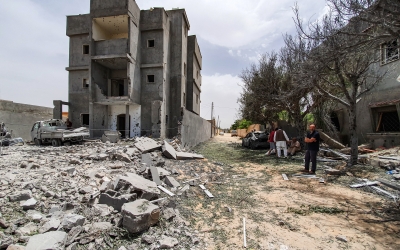
On 19 January, a peace plan for Libya was agreed to by 12 key leaders in Berlin, including Turkish President Recep Tayyip Erdogan, Russia's Vladimir Putin, France's Emmanuel Macron, and Egypt's Abdel Fattah el-Sisi.
Still, Hillo pointed out that the 55-point road map for ending the war in Libya had seen "serious violations" in the last 10 days, with fighting escalating in and around Tripoli.
Hillo said that by the end of 2019, more than 345,000 people had fled their homes, with nearly 900,000 Libyans in need of humanitarian assistance.
"Unless we speak so bluntly and openly ... unless we start naming and shaming, we will have the resolutions but the reality on the ground will remain appalling," Hillo said.
Attacks on civilians and civilian infrastructure have doubled since 2019, resulting in at least 650 civilians either killed or wounded.
'It's going pretty well'
On Tuesday, heavy smoke could be seen billowing from Tripoli's port after a warehouse was hit by forces loyal to Haftar.
The attack happened as representatives of the parties prepared to meet for a second round of talks in Geneva under the auspices of the UN.
Both sides refused again to sit in the same room, UN Libya envoy Ghassan Salame told reporters, although he said he was hopeful of making progress.
"So while the situation on the ground remains a situation where the truce is very fragile... nobody has so far reneged on the principle of accepting the truce and the political process is trying to find a way to move forward," he said.
He added that a ceasefire was not a precondition for advancing on other matters such as how to better distribute state revenues from oil, saying economic discussions were going "pretty well".
"It is going pretty well on the economic side, but it is harder on the military side," he said.
Salame said he had received conditions from tribesmen allied to eastern forces to lift a blockade of eastern oil export ports, but said they were quite general and would have to be tackled through UN-led dialogue.
Tribesmen and other groups allied to the LNA joined with Haftar's forces a month ago to block major ports in eastern Libya and the southern Sharara oilfield, reducing oil output by more than 1 million barrels a day.
Salame had spoken to some tribal leaders to hear their conditions to end the blockade. A further round of discussions is planned in Geneva next week.
Middle East Eye delivers independent and unrivalled coverage and analysis of the Middle East, North Africa and beyond. To learn more about republishing this content and the associated fees, please fill out this form. More about MEE can be found here.


